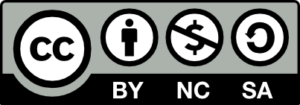According to environmental psychology is one of the most important factors to design in architecture and interior design which means the environment and surroundings will have features for bringing tranquility and high efficiency for their occupants. One of the areas that most people spend most of their time in it, is home. For this reason, the spaces and elements used in it, must be designed carefully and detailed. With increasing living in residential apartment, private courtyards were excluded from houses. In the past, people were together and washed courtyard and sat in a pleasant atmosphere at evenings. In those days, people tolerance threshold is much higher than today. More people communicated with each other, but most of today’s communication is virtual communication. Today, a lot of nature and live plants have been removed from our lives. This study aimed to investigate the role of the apartment live plants to control anger and aggression. For this study, 100 residential units were selected randomly to test. The collected data was investigated by correlation coefficient test (Spearman correlation) and Single-sample T-test and was evaluated using the 5-point Likert scale. Reliability of the two questionnaires was assessed using Cronbach’s alpha and it was seen to be 0.850 and 0/920. Results of the present study indicate that by increasing positive attitude toward the live plants and use them in apartments, aggression will be reduced.
The Role of Apartment Live Plants to Control Anger and Aggression
Publication Information
Journal Title: Asian Journal of Multidisciplinary Research & Review
Author(s): Malihe Taghipour & Fattaneh Rahimi
Published On: 27/06/2023
Volume: 4
Issue: 3
First Page: 61
Last Page: 75
ISSN: 2582-8088
Publisher: The Law Brigade Publisher
Cite this Article
Malihe Taghipour & Fattaneh Rahimi, The Role of Apartment Live Plants to Control Anger and Aggression, Volume 4 Issue 3, Asian Journal of Multidisciplinary Research & Review, 61-75, Published on 27/06/2023, Available at https://ajmrr.thelawbrigade.com/article/the-role-of-apartment-live-plants-to-control-anger-and-aggression/
Abstract
Share this research
Latest Publications

License Information
Copyright © [hfe_current_year]
Malihe Taghipour & Fattaneh Rahimi

Ownership and Licensing:
Authors of this research paper submitted to the Journal of Science & Technology retain the copyright of their work while granting the journal certain rights. Authors maintain ownership of the copyright and have granted the journal a right of first publication. Simultaneously, authors agreed to license their research papers under the Creative Commons Attribution-NonCommercial-ShareAlike 4.0 International (CC BY-NC-SA 4.0) License.
License Permissions:
Under the CC BY-NC-SA 4.0 License, others are permitted to share and adapt the work, as long as proper attribution is given to the authors and acknowledgement is made of the initial publication in the Journal of Science & Technology. This license allows for the broad dissemination and utilization of research papers.
Additional Distribution Arrangements:
Authors are free to enter into separate contractual arrangements for the non-exclusive distribution of the journal’s published version of the work. This may include posting the work to institutional repositories, publishing it in journals or books, or other forms of dissemination. In such cases, authors are requested to acknowledge the initial publication of the work in the Journal of Science & Technology.
Online Posting:
Authors are encouraged to share their work online, including in institutional repositories, disciplinary repositories, or on their personal websites. This permission applies both prior to and during the submission process to the Journal of Science & Technology. Online sharing enhances the visibility and accessibility of the research papers.
Responsibility and Liability:
Authors are responsible for ensuring that their research papers do not infringe upon the copyright, privacy, or other rights of any third party. The Journal of Science & Technology and The Science Brigade Publishers disclaim any liability or responsibility for any copyright infringement or violation of third-party rights in the research papers.




